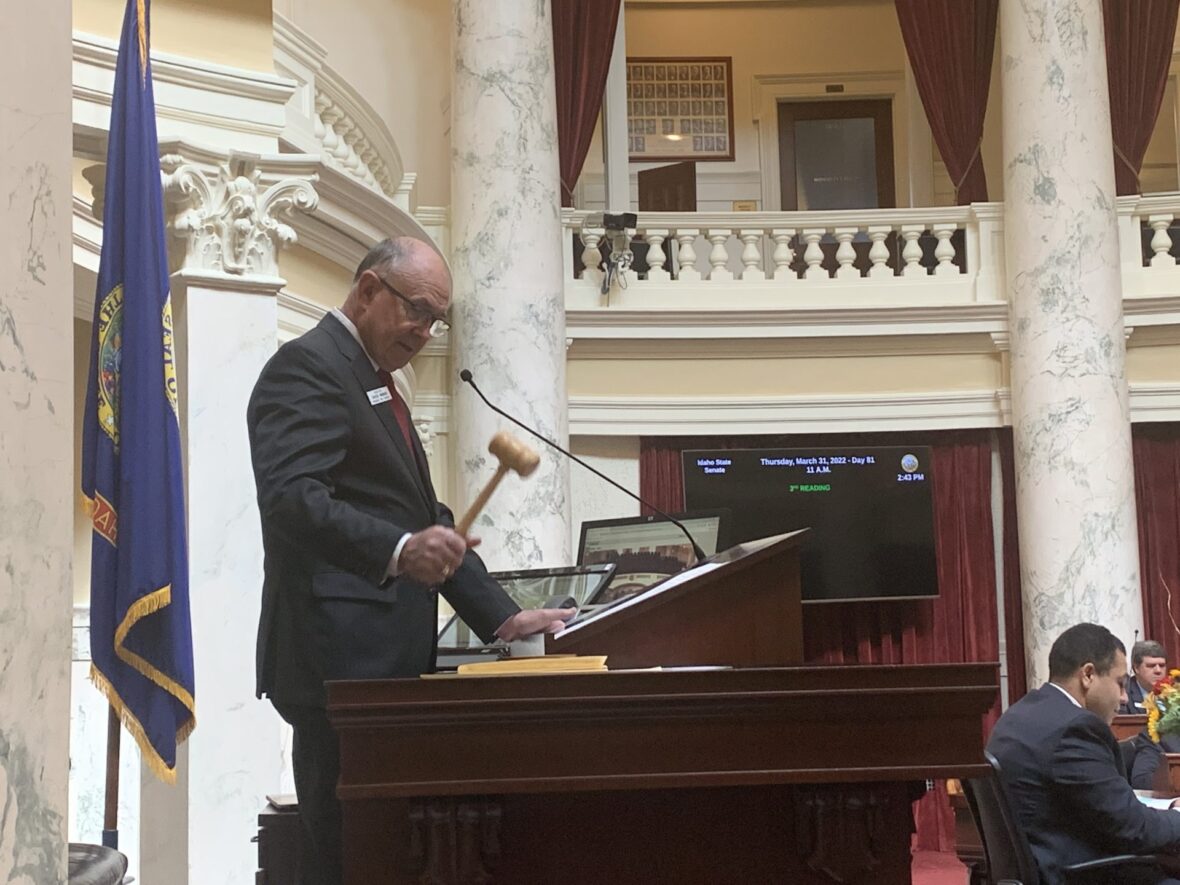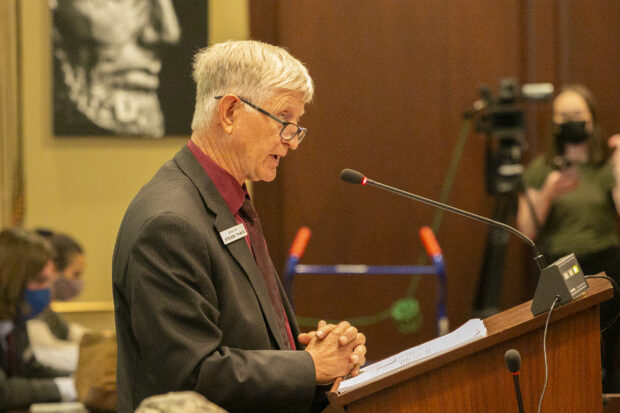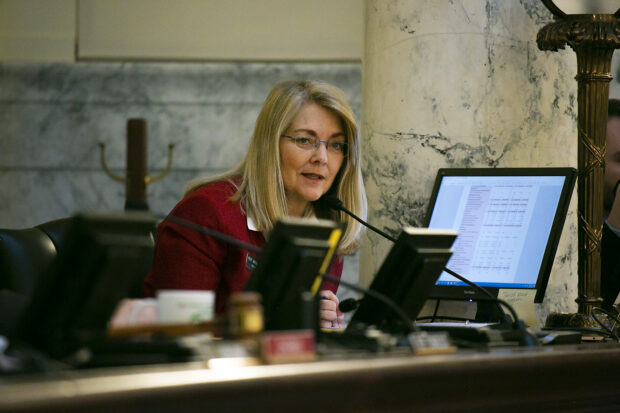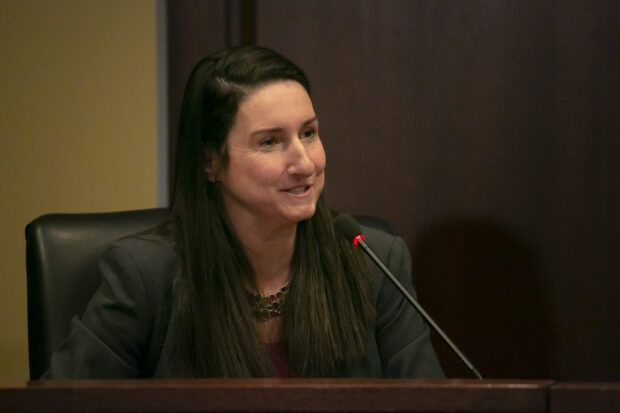Tuesday’s legislative primaries were a purge.
Twenty Republican incumbents lost — or stand to lose, depending on possible recounts.

The purge followed no particular pattern. Several key moderates lost, in both the House and Senate. So did several vocal House hardliners. And some of the churn was inevitable — an outgrowth of head-to-head primaries forced by redistricting.
It all adds up to massive turnover. Turmoil in the committees that shape education policy. A much more conservative Senate, perhaps more closely aligned with the House.
And two big overriding questions: Who are these new people? And what are they going to do? For the newbies, that’s a question requiring some self-reflection.
“You have to learn what your politics are, No. 1, when actually presented with bills,” said Rep. Wendy Horman, R-Idaho Falls.
By the numbers: Another step in an extreme makeover
Even before Tuesday’s purge, the Legislature was heading into an overhaul. Several powerful lawmakers announced their retirements — 22-year Sen. Patti Anne Lodge, chair of the Senate State Affairs Committee; Rep. Rick Youngblood, House co-chair of the budget-writing Joint Finance-Appropriations Committee; and Senate Minority Leader Michelle Stennett, among others.
Three more lawmakers gave up legislative seats to run for statewide office.
Redistricting — the once-a-decade process of redrawing legislative boundaries to reflect new Census counts — also put some incumbents on a collision course.
Then, on top of all that, came Tuesday.
Add it all up, and at least 42 new lawmakers will be in office in January — two-fifths of the Legislature. And that assumes that no additional incumbents lose in November.
The big-name losses

Those numbers only tell a part of the story.
Tuesday’s ousted legislators — with close to 140 years’ Statehouse experience — include some heavy hitters on education and budget policy:
- Senate Education Committee Chairman Steven Thayn of Emmett, a 16-year Statehouse veteran, lost to a fellow incumbent, Sen. C. Scott Grow, R-Eagle.
- Conservative challengers ousted two moderates who served on Senate Education and JFAC: Jim Woodward of Sagle and Carl Crabtree of Grangeville.
- Canyon County voters ousted Jeff Agenbroad of Nampa, the Senate’s JFAC co-chair.
- The House Education Committee’s vice chairman, New Plymouth Republican Ryan Kerby, a retired school superintendent, lost in his bid for a fifth two-year term.
Some legislative churn is inevitable. And this legislative primary, punctuated with high-profile matchups, was destined to be a big one. But some upsets — such as Kerby’s loss and Agenbroad’s loss — seemed to come from out of nowhere.
A scramble for key committee seats, leadership posts
Turnover will hit Senate Education hard. Four of the committee’s nine members lost Tuesday: Thayn, Woodward, Crabtree and Sen. Robert Blair, R-Kendrick, appointed to serve for the 2022 session.
But even more remarkable is the churn in JFAC, the Legislature’s most powerful committee. Seven JFAC Republicans lost Tuesday. Factor in retirements, and newbies will fill at least 11 of JFAC’s 20 seats.
Because JFAC gets to write budgets — not just for education, but for all state agencies — its committee assignments are coveted. But it’s also a technical, process-oriented committee that places a premium on experience. While some lawmakers might well be taking a fresh look at jockeying for a spot on JFAC, there also aren’t many budget-writers poised to climb the leadership ladder.

“The bench is cleared,” said Horman, a veteran JFAC education budget writer. Running unopposed, Horman had the luxury of watching Tuesday’s chaos from the sidelines.
With so few holdovers — Horman and Grow among a short list of JFAC veterans — it’s hard to say who winds up running the committee. But there’s also going to be a scramble for other chairmanships. Who takes over for Thayn at Senate Education? Who goes after Lodge’s spot in charge of Senate State Affairs? Who replaces Senate Health and Welfare Committee Chairman Fred Martin of Boise and Senate Local Government and Taxation Committee Chairman Jim Rice of Caldwell — two other incumbents who fell Tuesday?
And for lawmakers with high aspirations, who runs for leadership positions, decided in closed-door party caucuses after the November elections?
Leadership elections — which often come down to personal allegiances and horse trading — are hard enough to handicap under normal circumstances. Turnover is another big wild card.
Consider this: In 2012, House Republicans did something rare. They ousted Speaker Lawerence Denney and elected Scott Bedke to take his place.
That in-house vote came after the redistricting process of a decade ago, and a change election that swept in 30 new House members, including Horman.
In 2022, there will be at least 31 new House members.
A shifting balance of power — especially in the Senate
The primaries settled a few old scores on the House floor.
Hardliners ousted at least one House adversary: Rep. Paul Amador, R-Coeur d’Alene, the chair of the House Ways and Means Committee, and the personification of a committee process that bottled up conservatives’ pet bills. By the same token, moderates took out some of the House’s most vocal hardliners — particularly Rep. Ron Nate, R-Rexburg, who spent much of the 2022 session jabbing at Amador on the House floor, seeking a vote on a grocery tax repeal assigned to Ways and Means.
All that said, it’s hard to tell whether the 2023 model of the House will be more conservative, more moderate or more of the same.
The Senate is a whole different story. On Tuesday, the Senate moved clearly and swiftly to the right.
A long list of moderate Republicans got the boot: Woodward, Crabtree, Agenbroad and Martin, among others. Three House conservatives — Reps. Codi Galloway of Boise, Ben Adams of Nampa and Tammy Nichols of Middleton — could be on their way to the Senate.
For years, a rotunda and a large ideological gap have divided the House and the Senate. The Senate has long acted as a buffer, blocking hot-button legislation from the House and overwhelmingly green-lighting budgets that struggled to pass the House.
All of that could change, to House Minority Leader Ilana Rubel’s dismay.

“I think the days of the Senate as the backstop … are over, said Rubel, D-Boise. “We have lost so many of the governing Republicans.”
And in the end, she said, the churn in the Legislature could even override the outcome of Tuesday’s gubernatorial primary, when Republicans overwhelmingly elected incumbent Brad Little over a field of conservative foes. “At the end of the day, the governor’s still got to get this stuff through JFAC.”
But Senate President Pro Tem Chuck Winder — who withstood a close GOP primary challenge of his own Tuesday — is adopting a wait-and-see approach.
“We will miss some senior experience and institutional knowledge,” Winder told Idaho EdNews’ Jennifer Swindell Wednesday. “I’ve had several people call and ask me what I’m going to do. I’ve been telling them to give me a chance to think about it.”
Kevin Richert writes a weekly analysis on education policy and education politics. He is writing two followups this week on the 2022 primary election. On Thursday, Richert will take a closer look into the split within the Republican primary.
